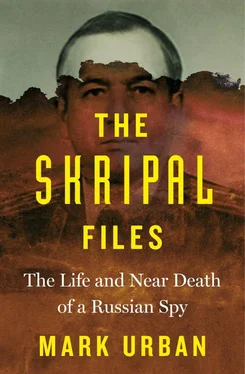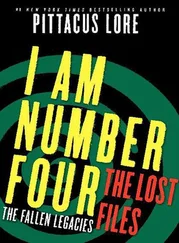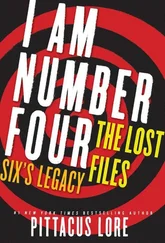In some ways this story was helped by the British government’s own language, from 12 March onwards, in using the term ‘military-grade nerve agent’. Whitehall signed up to this because it wanted to get ahead of Russian denial by emphasizing that the A234 used in Salisbury was the product of a sophisticated laboratory, not something that could have been cooked up in someone’s kitchen. The OPCW, more wisely, simply referred to the nerve agent’s high purity.
The term ‘military-grade’ was, though, both meaningless, in that the stocks of VX or sarin held by armies are often not especially pure, and misleading. It caused many commentators to assume that the results of contamination with this poison must be fatal. When it wasn’t, that just helped President Putin to cast doubt on Downing Street’s version.
In fact the Soviet Army doctrine for using agents like VX assumed both huge quantities – scores of litres of agent to soak an area the size of a football field – and limited casualties: 10–30 per cent among enemy troops equipped with protective gear. So this ‘military’ frame of reference, promoted by British language, was hardly useful. Salisbury was a completely different kind of case in that just a few milligrams would be used in a covert operation against one target.
Evidently there had been successful poison plots against defectors – and the curious case of Ivan Kivelidi, a Moscow businessman murdered with Novichok smeared on his phone in 1995, apparently as part of a business dispute. It was also true that a nerve agent was suspected in the 2002 killing of Ibn al Khattab, a Saudi jihadist who fought in the north Caucasus. With Khattab, the FSB was suspected of lacing a letter delivered to him by a previously trusted courier. However, not all the poison plots had achieved their intended aim.
Others had survived attempts by Soviet or Russian intelligence: from Nikolai Khokhlov, poisoned with thallium in Frankfurt, 1957; to Vladimir Korczak, injected with ricin in the US, 1981; Ukrainian politician Viktor Yushchenko, who ingested dioxin in 2004 with near-fatal results; or former Prime Minister Yegor Gaidar, struck down by an unknown substance in Ireland in 2006. All fell seriously ill, but came through.
Whether the Salisbury poison proved fatal would depend critically on issues such as potency and dosage – rather chancy when smearing a thick liquid on the target’s door handle. Nevertheless, the ‘they’d be dead’ narrative, with its implicit, ‘if it was really us, we would know how to take care of these things’, seemed credible to many. And for as long as Britain pinned as much of its case of the identification of this obscure Russian-developed nerve agent, that continued to be a target of the Kremlin’s counter-blasts.
A few weeks after Putin’s remarks, on 14 April, Foreign Minister Sergei Lavrov, citing ‘confidential information’, dropped a bombshell. The international inspectors who’d gone to Salisbury had turned up something else: ‘the samples had traces of toxic chemical BZ and its precursors’. Russia had never made the agent BZ, an incapacitant, he said, rather it was a NATO type of chemical weapon. He suggested that the Spiez laboratory in Switzerland had discovered the BZ in samples sent to them by the international watchdog, the OPCW. Yulia had been discharged from hospital by then, perhaps it hadn’t been a nerve agent at all but this lesser poison BZ?
The initial RT report of Lavrov’s remarks gained 144,000 impressions on social media. But of course the effect was multiplied as truthers or pro-Kremlin users put the same idea into their own posts. This ‘story’ was though so blatantly dishonest that even the normally mild-mannered OPCW staff and Spiez laboratory came out to rubbish it.
The Spiez lab tweeted, ‘We have no doubt that Porton Down was right in identifying Novichok as the poisoning agent.’ The OPCW followed up. ‘There was no other chemical that was identified by the labs’ other than Novichok, said the OPCW’s Michael Blum, explaining that some BZ was used ‘in the control sample prepared by the OPCW lab in accordance with the existing quality-control procedures. Otherwise it has nothing to do with the samples collected by the OPCW team in Salisbury.’ Far from being an alternative, the BZ was in control samples as a means of keeping the lab accurate and honest.
Of course it is a truism much loved by those in the information-warfare business that a lie will travel round the world before the truth has got its boots on. So corrections to Lavrov were shared by far fewer people than the initial reports.
Even so, Lavrov’s story was counter-productive in that it triggered accusations, for example from the Swiss government, that Russia was undermining international institutions – namely the OPCW. The British decision to bring them in soon after the poisoning was a deft move, one that the Kremlin had struggled to counter.
Initially, and tellingly given the original purpose of the Novichok project, one Russian official had claimed such agents were not subject to the Chemical Weapons Convention. This view was swiftly squashed by the OPCW itself. Once the inspectors were Salisbury-bound the Russians had suggested they wouldn’t accept the findings.
That was problematic too. Casting doubt on the probity of what the organization or its affiliated labs were doing sat ill with Russia’s other arguments – for example that it had already got rid of all its chemical weapons, a milestone certified in 2017 by, yes, that same OPCW. But once again, in the febrile atmosphere on social media, few people were marking the Russians on consistency.
As for the British government’s Strat-Coms (Strategic Communications), coordinated through Downing Street, they followed an altogether different pattern. The dynamics of the two information campaigns were almost negative images of one another. Britain wanted to maintain a single, streamlined thread: that the Russian state had used a nerve agent to poison Skripal on the streets of Salisbury. Russia by contrast used a highly decentralized approach in which all manner of players circulated any number of alternative narratives with the aim of undermining the UK story.
In the early weeks, driven by the Downing Street StratComs grid, the story found focus on the expulsions and OPCW inspectors’ visit. After that, they moved to minimize the story, and even by late March I and others covering it found that calls were not being returned, and there was a desire to move on to other matters. The police, the hospital, Foreign Office, you name it, all became markedly less communicative.
In late March or early April it was still not possible to confirm even quite basic facts about what had happened. Where had Nick Bailey become contaminated? Was Yulia conscious? Were they in isolation? Had Porton Down been able to confirm the origin of the Novichok?
The information vacuum created its own risks. How come Yulia had phoned her cousin Viktoria, sounding healthy enough, when we had no reason to suppose anything other than that she was seriously ill? That eroded trust in the British version of events. The absence of pictures from the hospital also fed doubts in many quarters, creating a vacuum in which the rumours that the Skripals were already dead or, later, that they were effectively prisoners to gain some currency.
Of course there were tensions within the information machine between those who favoured saying as little as possible and those who wanted to contest Russia’s lines more energetically. The ‘minimizers’ felt remarks by the director of Porton Down on 3 April proved their point. He told Sky News that his labs had not been able to trace the Salisbury Novichok samples to Russia, still less a particular Russian facility. This interview also prompted suggestions that Boris Johnson and the Foreign Office more generally had exaggerated their case, implying that the origin of the Russian agent was known to them.
Читать дальше












